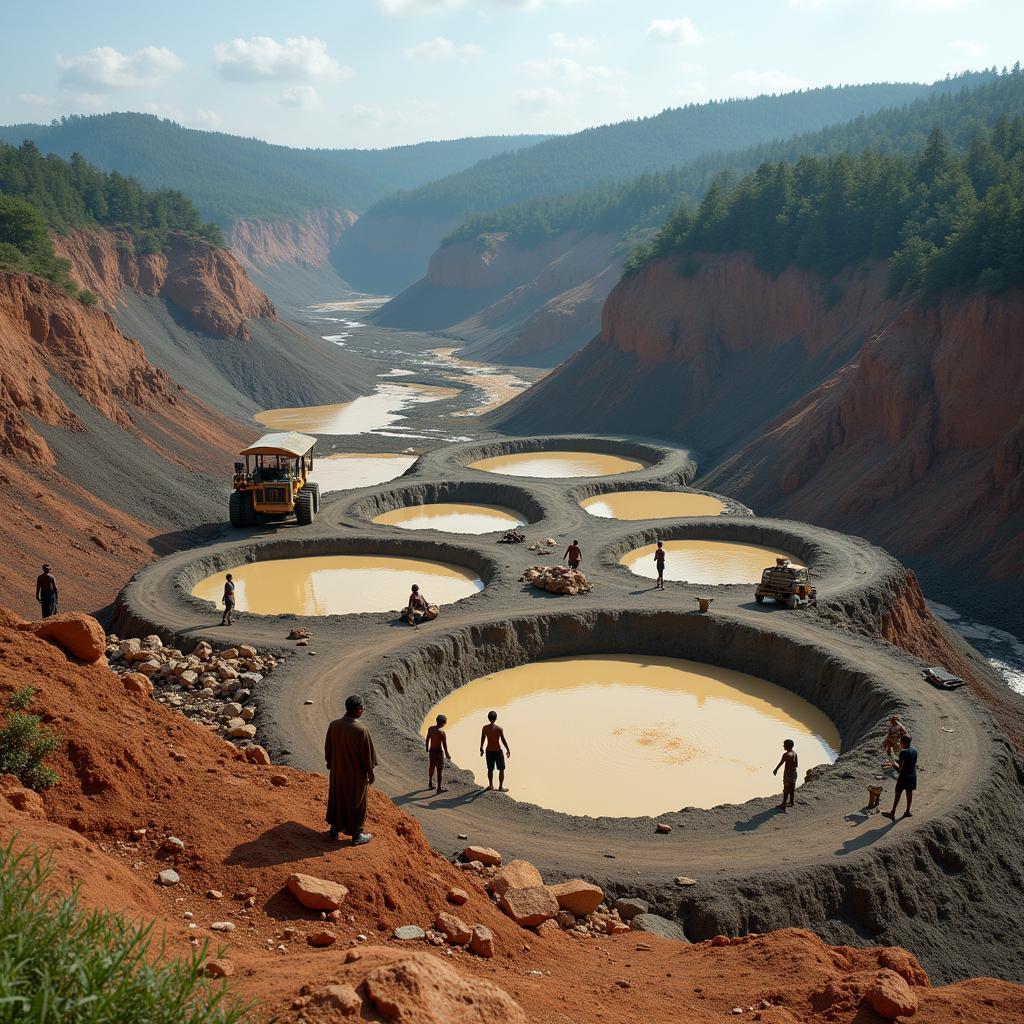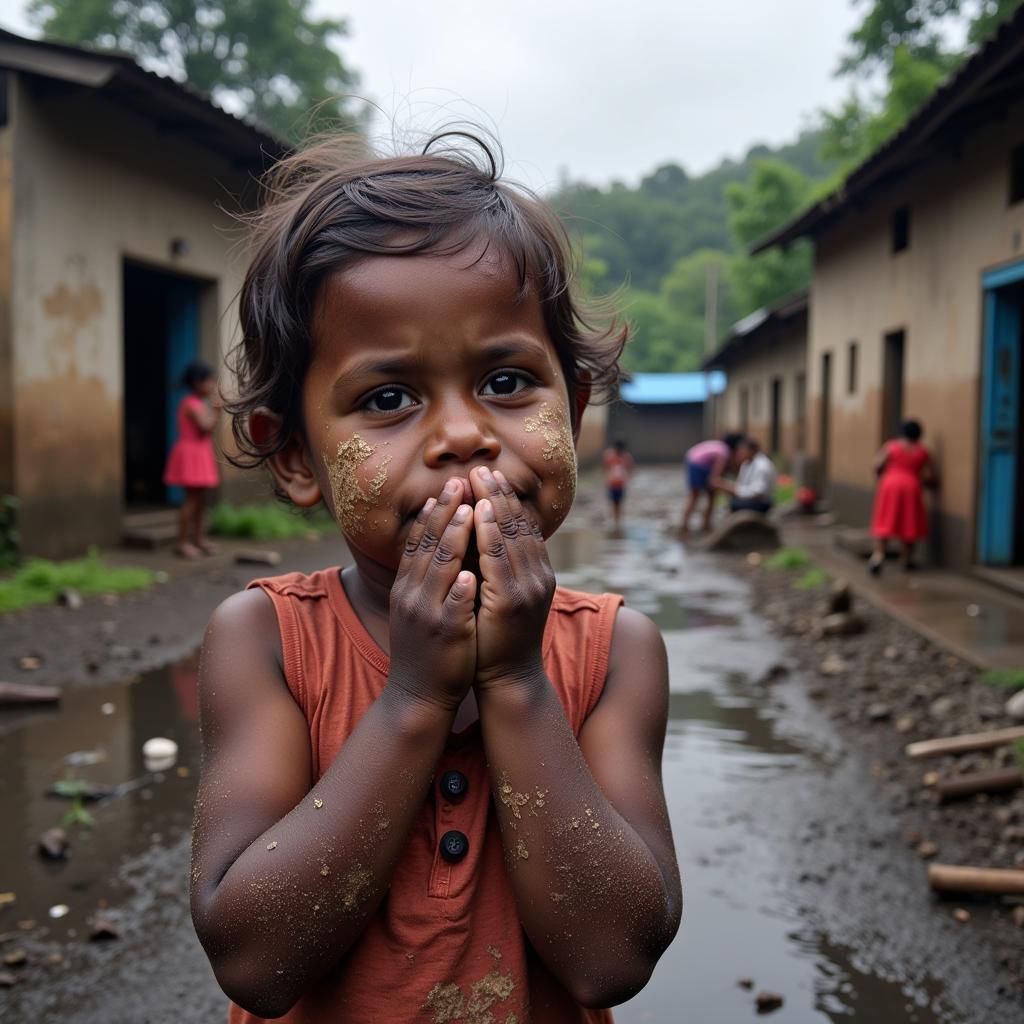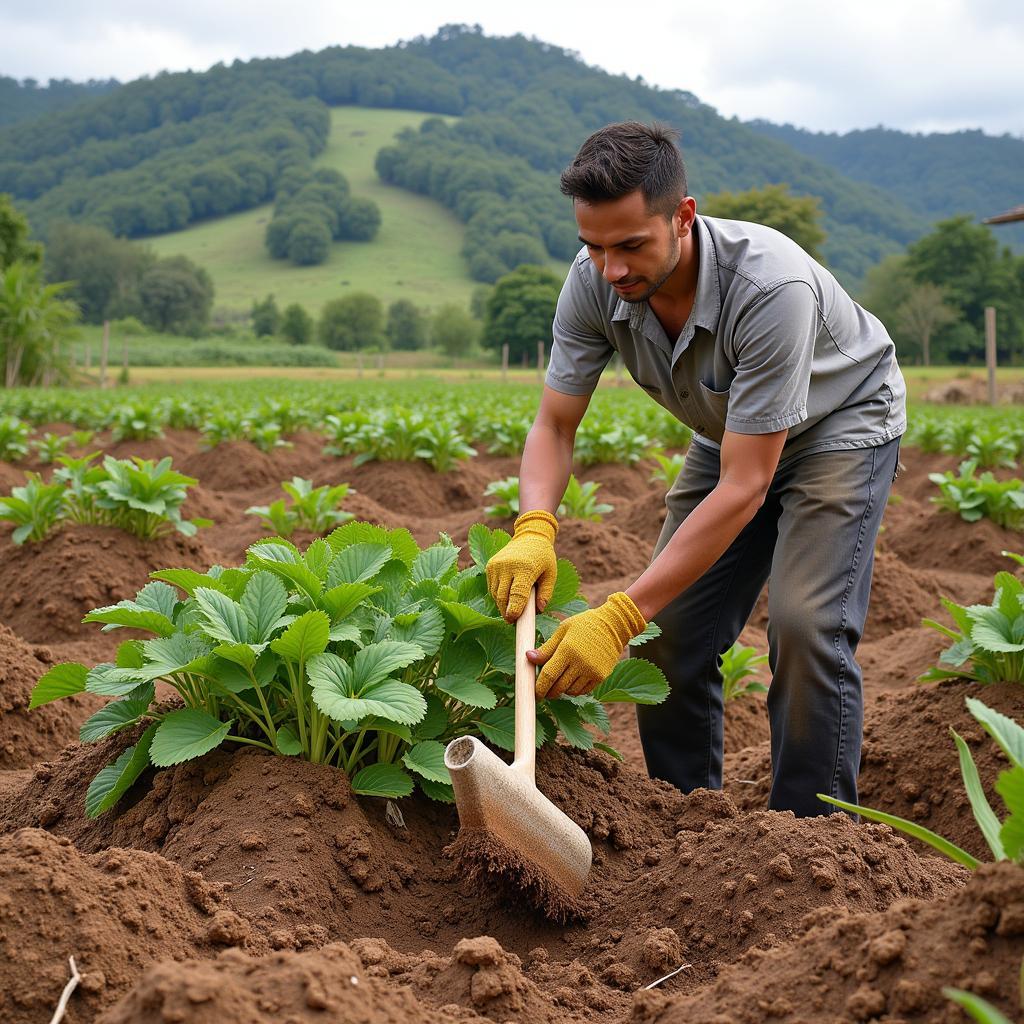The Dark Reality of the African Illegal Gold Trade
The devastating impact of the African Illegal Gold Trade is a complex issue, demanding global attention. This illicit activity fuels conflict, devastates environments, and robs African nations of vital resources. We will delve into the intricate web of this trade, exploring its causes, consequences, and potential solutions.
 Illegal gold mining operation in Africa, showing environmental damage and unsafe working conditions.
Illegal gold mining operation in Africa, showing environmental damage and unsafe working conditions.
Unmasking the Drivers of Illegal Gold Mining in Africa
Several factors contribute to the proliferation of illegal gold mining across the continent. Poverty and lack of economic opportunity often drive individuals into this dangerous work, seeking any means of survival. Weak governance, corruption, and limited regulatory oversight create an environment where illicit operations can thrive. Furthermore, the high global demand for gold fuels the trade, creating a lucrative market for illegally mined resources. These conditions make Africa particularly vulnerable.
What fuels the African illegal gold trade? Poverty, corruption, and weak governance are key contributors, creating an enabling environment for illicit operations.
Environmental Devastation: A Heavy Price for Gold
The environmental consequences of illegal gold mining are severe and far-reaching. Deforestation, soil erosion, and water contamination are widespread, impacting biodiversity and the health of local communities. Mercury, frequently used in the extraction process, poses a significant threat to human health and the environment. The african grey crowned crane and the african golden cat are examples of precious African species that are endangered from this industry. The fragile ecosystems of many African regions are being irreparably damaged by these unsustainable practices.
How does illegal gold mining harm the environment? Deforestation, mercury pollution, and water contamination are just some of the devastating environmental consequences.
 Impact of illegal gold mining on local communities in Africa, showing health issues and social disruption.
Impact of illegal gold mining on local communities in Africa, showing health issues and social disruption.
The Human Cost: Exploitation and Conflict
The human cost of the African illegal gold trade is immense. Miners, often including children, work in hazardous conditions with little or no protection, facing risks of injury, illness, and even death. Exploitation and human trafficking are rampant, with vulnerable individuals forced into labor under inhumane conditions. The profits from this illegal trade often fund armed conflicts and criminal networks, further destabilizing already fragile regions.
What is the human cost of this trade? Miners, including children, endure dangerous conditions, exploitation, and health risks, while the profits fuel conflict.
Combating the Illegal Gold Trade: A Multifaceted Approach
Addressing the complex issue of the African illegal gold trade requires a multifaceted approach. Strengthening governance and promoting transparency are crucial steps to curbing corruption and improving regulatory oversight. Investing in sustainable economic development and creating alternative livelihood opportunities can help reduce the economic pressures that drive individuals into illegal mining. International cooperation and stricter regulations on the global gold trade are also essential to disrupt the flow of illicitly mined gold. The african golden cobra, also an endangered species, often loses its habitat because of illegal mining activities.
How can we combat this illegal trade? Stronger governance, sustainable development, and international cooperation are essential to address this complex issue.
 Solutions for combating the African illegal gold trade, including community development projects and responsible mining initiatives.
Solutions for combating the African illegal gold trade, including community development projects and responsible mining initiatives.
The Future of Gold Mining in Africa
Dr. Abiola Adebayo, a prominent economist specializing in African development, emphasizes, “The future of gold mining in Africa hinges on prioritizing responsible and ethical practices. We need to shift from exploitation to sustainable development, ensuring that mining benefits local communities and protects the environment.”
Chief Kgosi Molosiwa, a traditional leader from a mining-affected region in Botswana, adds, “Our land is our heritage. Illegal mining robs us of our resources and destroys our environment. We must work together to protect our future.”
Professor Fatima Hassan, an environmental scientist from Kenya, states, “The use of mercury in illegal gold mining is a ticking time bomb. Its impact on human health and the environment is catastrophic and demands immediate action.”
Conclusion
The African illegal gold trade poses a significant challenge to the continent’s sustainable development. By addressing the root causes, strengthening governance, and promoting responsible practices, we can work towards a future where gold mining benefits African communities and protects the environment. The african artifacts for sale can provide a more sustainable and culturally respectful opportunity for local communities than illegal gold mining.
The african golden cat cats africa suffers from habitat loss due to illegal gold mining. This needs to be stopped.
FAQ
- What are the main drivers of the African illegal gold trade?
- What are the environmental consequences of illegal gold mining?
- How does illegal gold mining affect local communities?
- What are some solutions to combat the illegal gold trade?
- How can consumers make ethical choices regarding gold purchases?
- What role do international organizations play in addressing this issue?
- How can African governments improve regulatory oversight of the mining sector?
When you need help, please contact Phone Number: +255768904061, Email: [email protected] Or visit us at: Mbarali DC Mawindi, Kangaga, Tanzania. We have a 24/7 customer service team.

